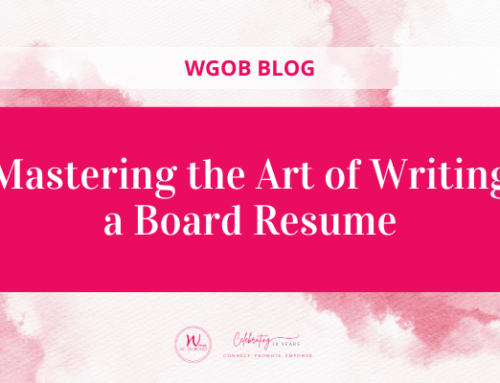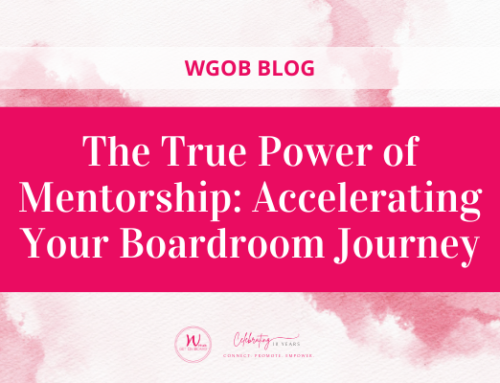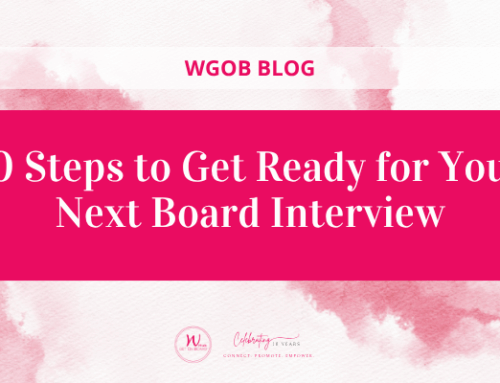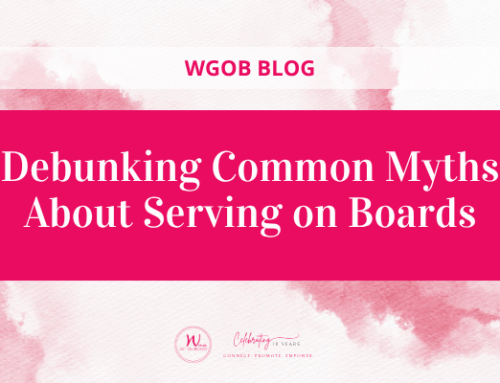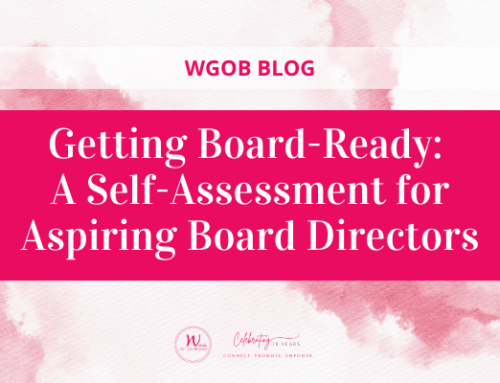
You were a senior executive at HP. How did that experience help further your board aspirations?
It was a combination of my desire to grow, but also my employer’s acknowledgement that I was top talent. This opened opportunities for stretch assignments, exposure to more senior executives and specialized training at the Stanford Graduate School of Business and a Harvard-HP led program. These provided growth opportunities to feel like I was elevating myself so that I could actually contribute to a board in a more effective way.
Did HP have a mentorship program?
Yes, HP had a mentorship program. However, something that was really more important than mentorship throughout my career was sponsorship. Sometimes you don’t even know that there is somebody sponsoring you. To be sponsored means somebody’s putting your name forward and standing behind you and advocating for you. That’s huge.
Sponsorship led to stretch assignments that were decided upon at executive levels, very, very high up in the organization. When people come to you and ask you to do something outside of your norm, you have two choices. One is to say, “No thank you”; the other is, “Sure, I’m in”. Typically speaking if you say no, the opportunity is unlikely to come again so I always said yes. I learned that if you’re not feeling uncomfortable then you’re not growing. So, it’s normal for me to feel a little bit of lack of confidence as I head into something like this because I don’t have all the answers, and that was fine.
How that relates to governance is that the organization didn’t directly put me up for a board. At the end of the day, it was really me driving all of my own decisions around what I needed to do for leadership that prepared me for board work.
Describe some experiences that helped you develop your governance and leadership skills?
Our company had difficulties at the board level at one time. It was very interesting to be an executive at a company about which you are very passionate and see this kind of drama going on. However, because solid foundational governance work had established a strategy and mission driving people towards a common vision, we were able to manage the company through the chaos because we still had that infrastructure in place.
From that experience I learned that you can’t have the CEO/ President also be the Chair of the board. That person is overseeing themselves. Within the board, there needs to be a complete delineation from the executive team and the board.
It sounds like that was a formative experience in crystallizing your values and board aspirations.
Values and good ethics, definitely. That scenario also helped me formulate what kind of board I would want to be on and the kind of questions that I want to ask; the kinds of things that will protect my reputation because of my ethics and standards.
How do you focus your search for new board opportunities?
Identify the areas where you are most passionate and where you can contribute your time and energy to a board. I am interested in joining a board where significant changes are needed; where reinvention and transformation are required for future growth. I’ve learned that my skills are transferable across industries and functions, so I am opening my network beyond my comfort zone and focusing on board requirements vs. the industry sector.
Can you describe the path to your appointment to the Bank of Canada board?
I saw the Bank on the Governor-in-Council online appointments roster and reviewed the description of desired skillsets. In particular, their agenda of large innovation, transformation and technology deliverables for the future compelled me. These are the three main areas where I have honed my skills and believe my most passionate contributions to the board can be made. I was humbled to be appointed to the board. Anybody looking at government boards should be prepared for a lengthy process. You don’t always hear follow-up and the timelines can be very long.
What have you learned about board searches that you wish you knew at an earlier stage?
One thing that I neglected in my planning was to start doing a lot of networking in Canada and building towards that board opportunity before I left HP. When I finished my corporate work, I had to start from ground zero. My suggestion is that as people start their next stage early, have some overlap. For women, networking is not always natural to us. Start quickly, start soon. Make it part of your everyday corporate career and let people know what you want. It really does work.

